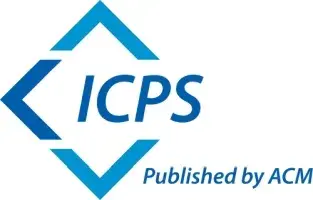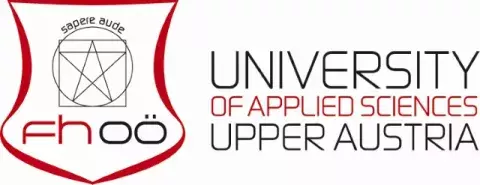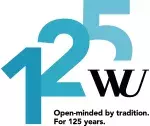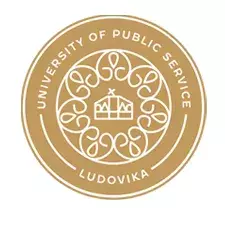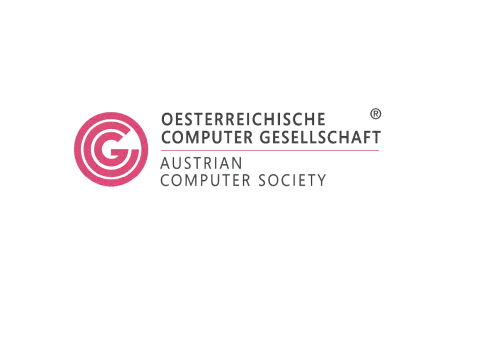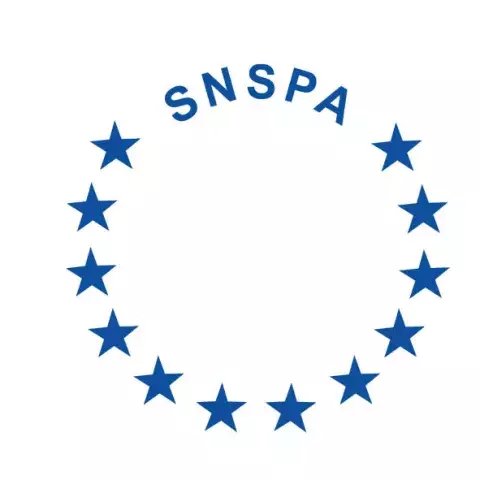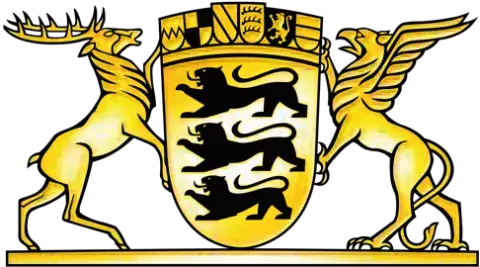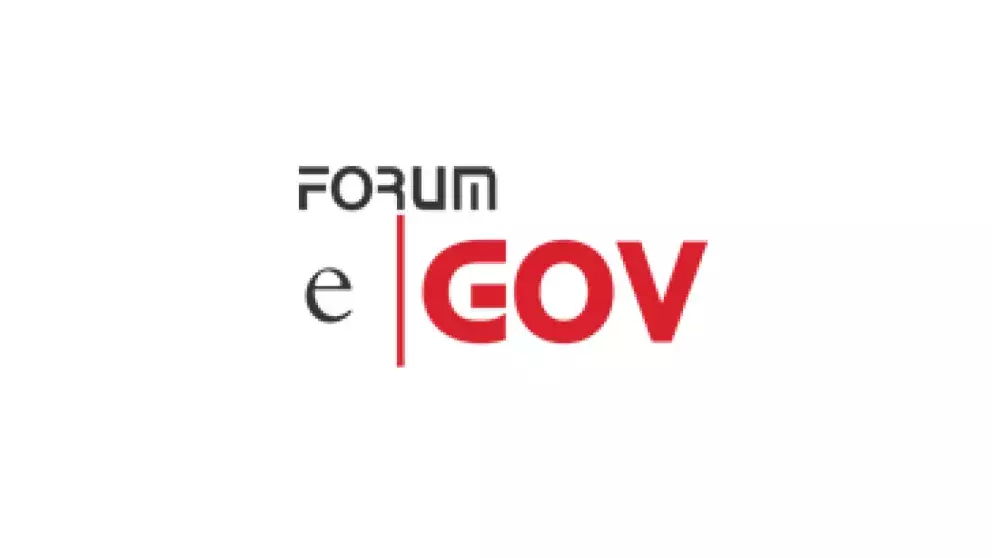
3. bis 5. Dezember in Bukarest
Die Central and Eastern European e|Dem and e|Gov Days sind allen Aspekten der IKT im öffentlichen Sektor gewidmet. Jedes Jahr wird ein spezielles Thema gewählt, das die Keynotes und Podiumsdiskussionen dominiert. Das Thema für 2025 wird demnächst bekannt gegeben.
Topic: Coming Soon
Die Konferenzsprache ist ausschließlich Englisch. Die Beiträge werden einem doppelblinden Begutachtungsverfahren unterzogen und bei ACM ICPS veröffentlicht.
Submission
CEEeGov publishes original, peer-reviewed work that has not been published before. Submissions should follow a clear methodological framework, empirical work should be based on reproducible data and analysis. For our policy on plagiarism, ghost writing and duplicate publications, see the processes in this flowchart.
Formatting Rules & Copyright Transfer
Please submit your paper in MS Word using the Word submission template from https://authors.acm.org/proceedings/production-information/preparing-your-article-with-microsoft-word
On submission please also provide us with the information in this MS Excel file; it will be needed to create your entry in the ACM rights system.
The proceedings will also be distributed as a paper copy at the conference.
Publication Ethics
We follow the COPE Code of Conduct for Journal Editors, wherever applicable to conference publications to ensure the hightest standards of publication ethics and avoidance of malpractice. For details of the Code of Conduct, see this flowchart.
Guidelines for Reviews
- Reviews are to ensure the pertinence and scientific quality of the proceedings volume and the conference presentations; they evaluate the importance, originality and clarity of the paper, the validity of the methods used and the paper’s relevance to the conference.
- Reviews are managed by one member of the organising committee (currently Prof. Müller-Török, HVF Ludwigsburg, Mueller-Toeroek at hs-ludwigsburg.de); the pool of reviewers are the members of the programme committee. Reviewers are selected according to the topics and fields within the scope of the conference and the general principle to spread the work load evenly among programme committee members. The committee covers the scope of the conference in its broadest sense and ensures availability of suitable reviewers for virtually any topic within scope.
- All reviews are double-blind, at least two reviews are collected per submission. A paper is accepted (possibly with rework), if both reviews are positive. If the two initial reviews disagree, a third – decisive – review from another programme committee member is requested.
- Reviewers are expected to indicate to the review management, if there are conflicts of interest or other factors that may impair the relevance of the review immediately (eg, they recognize author or work, they do not feel competent in the field, etc.); they are also requested to indicate cases, where duplicate submissions and plagiarism are suspected. Review management follows the relevant procedures here.
- Reviews are expected to be pertinent and substantiate the decision to accept/accept with rework/reject a submission. They should provide hints to authors how to improve the quality of the paper; libellous or offensive criticism is not acceptable.
- Reviewers are kindly requested to produce their reviews in a timely manner in line with the published schedule of the conference; reviewers who decline their reviews without substantial reason or simply do not deliver are discontinued as programme committee members.
- Should the author/s of a submission feel that the procedures and principles of this guideline have been violated, the author/s can appeal from the initial decision to the review appeals board (currently consisting of Prof. Gergely Deli, Ludovika University of Public Service, Budapest, Prof. András Nemeslaki, Budapest University of Technology and Economics, and Prof. Alexander Prosser, WU Vienna). This board will review the decision, is entitled to request additional reviews if necessary and make a final decision on the submission.
to be published
to be published
Coming soon
Coming soon
- Franziska Cecon, University of Applied Sciences Upper Austria
- Tamás Kaiser, Ludovika University of Public Service, Budapest
- Robert Müller-Török, Hochschule für öffentliche Verwaltung und Finanzen Ludwigsburg
- András Nemeslaki, Budapest University of Technology and Economics
- Alexander Prosser, Austrian Computer Society/University of Economics and Business, Vienna
- Silvia Ručinská, Pavol Jozef Šafárik University, Košice
- Dona Scola, Information Society Development Institute, Chişinău
Programme Committee
Awad Mohammed, American University of Ras al-Khaimah
Bagnato Domenica, University of Economics and Business Administration Vienna
Balogh Zsolt György, Corvinus University Budapest
Berényi László, Ludovika University of Public Service, Budapest
Bergmann Marie, Federal University of Applied Administrative Sciences
Bernhart Josef, European Academy Bozen
Cecon Franziska, University of Applied Sciences Upper Austria
Cellary Wojciech, WSB University Poznan
Cojocaru Igor, Information Society Development Institute, Chişinău
Deli Gergely, Ludovika University of Public Service, Budapest
Dietrich Antje, University of Public Administration Kehl
Dragomirescu Horatiu, Bucharest University of Economic Studies
Duma László, Corvinus University of Budapest
Dürrschmidt Jörg, University of Public Administration and Finance Ludwigsburg
Eixelsberger Wolfgang, Carinthia University of Applied Sciences
Fási Csaba, Ludovika University of Public Service, Budapest
Ferkelt Balázs, Budapest Business School
Gourova Elissaveta, Sofia University St. Kliment Ohridski
Gramlich Ludwig, TU Chemnitz
Hansen Hendrik, Federal University of Applied Administrative Sciences
Harsági Viktória, Andrássy University Budapest
Hemker Thomas, Federal University of Applied Administrative Sciences
Kaiser Tamás, Ludovika University of Public Service, Budapest
Kő Andrea, Corvinus University of Budapest
Krasznay Csaba, Ludovika University of Public Service, Budapest
Kudo Hiroko, Chuo University, Tokyo
Leitner Christine, Centre for Economics and Public Administration Ltd. (CEPA)
Leitner Maria, AIT Austrian Institute of Technology GmbH
Loch Alexander, University of Public Administration and Finance Ludwigsburg
Makó Csaba, University of Public Service
Miloš Matija, University of Rijeka
Müller-Török Robert, University of Public Administration and Finance Ludwigsburg
Nemeslaki András, Budapest University of Technology and Economics
Paulin Alois, University of Public Administration and Finance Ludwigsburg Pautsch Arne, University of Public Administration and Finance Ludwigsburg
Pichler Johannes, Universität Graz
Pinter Róbert, Corvinus University of Budapest
Polcak Radim, Masaryk University Brno
Prosser Alexander, University of Economics and Business Administration Vienna
Roggenkamp Dirk, Berlin School of Economics and Law
Rucinska Silvia, Pavol Jozef Šafárik University
Sasvári Péter, University of Miskolc, Ludovika University of Public Service, Budapest
Schenk Birgit, University of Public Administration and Finance Ludwigsburg
Schulze Anna, Federal University of Applied Administrative Sciences
Scola Dona, Information Society Development Institute
Sievering Oliver, University of Public Administration and Finance Ludwigsburg
Simic Diana, University of Zagreb
Szádeczky Tamás, Budapest University of Technology and Economics, Budapest
Traunmüller Roland, Johannes Kepler-University Linz
Urs Nicolae, Babes-Bolyai University, Cluj-Napoca
May be amended
Austrian Computer Society
Österreichische Computer Gesellschaft (OCG)
Forum e|Gov
Wollzeile 1
1010 Vienna
Austria
www.ocg.at
University of Applied Sciences Upper Austria (FHOÖ)
Austria
www.fh-ooe.at
Ludovika University of Public Service, Budapest (NKE)
Hungária krt. 9-11.
1083, Budapest
Hungary
en.uni-nke.hu
National University of Political Studies and Public Administration (SNSPA)
Bvd. Expozitiei, No. 30 A, District 1
Bucharest, MD-2028
Romania
snspa.ro
University of Exonomics and Business
Welthandelsplatz 1
1020 Vienna
Austria
wu.ac.at
Alle Proceedings finden Sie hier.
For organizational reasons, we share data collected on the registration site of this website with the organizing partners in Hungay:
- National University of Public Service (henceforth: NKE)
- Budapest University of Technology and Economics (henceforth: BME)
Information on data protection concerning images (fotos and video)
Photos are taken by the organiser OCG, NKE and BME at the Central and Eastern European e|Dem and e|Gov Days.
Aim of the recording of the data (the photoshoot) is the advertising of the event to a wider audience, to the colleagues not personally present and to a professional audience, also to advertise the event on its Twitter page and by other available means of media.
Most of the photos are „mass photoshoots”, where individuals are not, or very hardly recognisable, on the other hand occasionally close-up photos may also be taken. Basis for handling the data is the consent based on GDPR Art 6. Clause (1), based on Hungarian Civil Code Art 2:48.
Those participants who do not wish close up photos to be taken of them, can indicate such wish at the beginning of the event, by the registration. They are asked to take their seats in the „no photo” zone. Should such a photo still be made at the event, such will either be deleted, or the person depersonalised, at latest during the afterworks.
Handling the data is based on consent and it is done until such content is withdrawn, nevertheless such paper based and other media appearences, that were created based on the consent given, can later not be deleted. Data is not forwarded to third countries.
Find the contacts for each organizer here:
You can withdraw consent at any time by way of addressing an e-mail to one of the contact persons, but it is not possible to modify the list of participants, so your data will be processed further under the legitimate interest of OCG, NKE and BME together with other financial documentation of the event.
In compliance with GDRP, you have the right to request access to and rectification or erasure of your personal data or restriction of processing the data or to object to processing as well as the right to data portability. Simply address OCG through an e-mail to datenschutz@ocg.at.
Kontakt
Secretariat ceee|Gov Days
Österreichische Computer Gesellschaft (OCG)
Wollzeile 1, 1010 Vienna
ceeegovdays@ocg.at
+43 1 512 02 35 - 0
